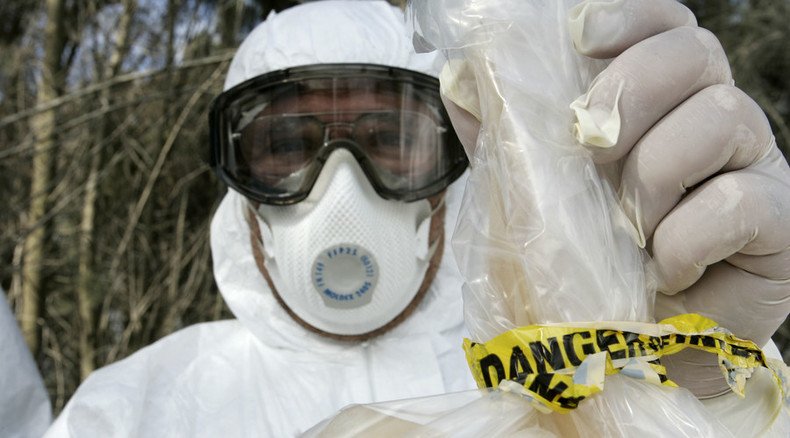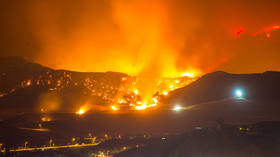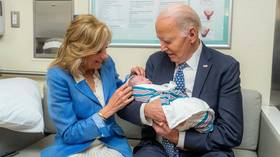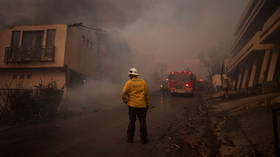DHS $1bn BioWatch alert system ‘doesn’t work’ – GAO

The network of biohazard detectors in 30 US cities, designed to alert Homeland Security to airborne pathogens, has been deemed unreliable in a US government audit. The program has produced almost 150 false positives, and has no performance standard.
First deployed in 2003, the BioWatch network consists of 600 aerosol collectors in 30 cities across the US, equipped with disposable filters. Once a day, the filters are removed by a technician and taken to a health lab, where they are inspected for five pathogens considered likely to be used in a terrorist attack.
In April 2014 the Department of Homeland Security (DHS) abandoned plans to upgrade the system, after media inquiries and scientific studies raised questions about the system’s effectiveness. Northrop Grumman, the principal contractor on the $1 billion project, wanted to automate the sample collection and cut the detection time to six hours, down from the current 36-hour window.
An audit by the Government Accountability Office (GAO), released this week, criticized BioWatch as unreliable and untested.
“DHS lacks reliable information about BioWatch Gen-2’s technical capabilities to detect a biological attack and therefore lacks the basis for informed cost-benefit decisions about possible upgrades or enhancements to the system,” the GAO report said.“The nation’s ability to detect threats against its security requires judicious use of resources directed toward systems whose capabilities can be demonstrated.”
Because the system was missing actual performance requirements, DHS officials cited “computer modeling and simulation studies” to support their claims, GAO auditors noted. “However, none of these studies were designed to incorporate test results from the Gen-2 system and comprehensively assess the system against the stated operational objective,” the report said.
Between 2003 and 2014, BioWatch generated 149 mistaken detections, all of which have been described as “false positives” by the Centers for Disease Control and Prevention (CDC) and other scientists consulted by the GAO.
The false alarms almost disrupted the 2008 Democratic National Convention in Denver, Colorado and the 2004 Super Bowl in Houston, Texas. In 2005, officials in Washington, DC almost closed the National Mall due to a false alarm generated by the system, the Los Angeles Times reported. In each case, authorities decided to dismiss the BioWatch alert, sometimes after lengthy deliberation.
Health and public safety authorities “need to have assurance that when the system indicates a possible attack, it's not crying wolf,” Timothy M. Persons, the GAO's chief scientist and lead author of the report, told the LA Times. “You can't claim it works.”
Bioterror detection system can't B trusted: We R ‘no safer today than when BioWatch launched decade ago’ https://t.co/BLJ0W4dO3q@jmhattem
— Rep. Tim Murphy (@RepTimMurphy) November 24, 2015In a response attached to the audit, DHS liaison to the GAO Jim H. Crumpacker wrote that bioterrorism “remains a continuing threat to the security of our nation” and that BioWatch is the only “biosurveillance system designed to detect the intentional release” of airborne pathogens.
BioWatch “remains a critical part of our nation’s defense against biological threats,” DHS spokesman S.Y. Lee told the Washington Post, describing the program as the “only federally-managed, locally-operated nationwide bio-surveillance system” designed to detect biological agents that might be used by terrorists.
While the DHS does not agree with all of GAO’s characterizations, Lee said, it has accepted all the recommendations in the report.












